· Excerpt
· Editor’s Comments
· Other Comments
· Locate a Copy
Excerpt
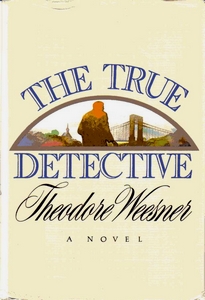
Off the phone, Dulac returns to his list. Yes, of course, he thinks, the APB should be all New England, and they should put reminders out to the customs people at the border. He’ll have DeMarcus take care of that. The photograph, he thinks. Did he mention the need for a photo to the state police commander? He cannot remember if he did or not and reminds himself to mention it in the rendezvous in the liquor store parking lot, before they go ahead and move on the house.
The last item of his list is the phrase and the question mark: Status of boy?
Was he being kept in the car? Dulac asks himself. Why would Vernon return to the cottage by himself? Was the boy in the car? Tied? Was he harbored elsewhere? How could this Vernon character leave him and be on campus that morning? Did he have access to some other shelter? A barn? A garage? As he was buying him food at McDonald’s, did that not imply an intent to care for the boy. Certainly it does, Dulac says to himself. And given all the signs this suspect has left in his wake, does that not imply that he is not a calculating or hardened criminal? Certainly, Dulac thinks. No question there. Is he therefore less dangerous? What is his frame of mind? Does he really know they have a make on him?
Standing, the questions left hanging, Dulac knows without looking at his watch that it is time to leave. Checking his hardware, double-checking the presence in his deep shirt pocket of the warrant and a USGS map on which the cottage has been marked in flourescent yellow, he takes up not his regular jacket but a flak vest he has checked out, and adds over this a light and roomy, dark blue jacket with POLICE on the back in reflective white letters. And he remarks to himself, this is why you’re here, this is the time to do what you’re here to do, as he moves across the hall and into the squad room, where the others are waiting in their blue jackets, with tear gas canisters, shotguns, rifle with scope, waiting for his word.
Editor’s Comments
Theodore Weesner’s The Car Thief is mentioned on several lists on this site, and remembering the power of that novel, I went rooting around the net one day in search of information about his other novels. Of these, The True Detective had the most intriguing title. I was curious to see what Weesner did with a detective novel, and searched the New York Times book review archive to see what critics thought of it. The first hit to come up was not a review, though, but the following letter to the editor:
May 17, 1987
To the Editor:
I’m sure you receive many letters of dismay and complaint over book reviews, and of course nothing is perfect — still, how can I tell you how deeply you have hurt me by publishing Jonathan Coleman’s review (April 26) of my new novel, The True Detective? The degree of unfairness is what is so extreme or, believe me, I would not be sitting here feeling as if I have witnessed the very authorities commit a terrible crime.
The book in question is one I worked on for more than five years, and it came alive, and it does work — it is relevant and it is compelling — and the responses I’ve received from others and in earlier reviews have been genuine, extravagant, even passionate. Yet you chose to give it a short review, inconspicuously placed, and — and I just cannot deal with this — your reviewer did not even understand what he read.
I repeat: your reviewer did not even understand what he read.
And you printed it. You break my heart. You owe me much more than an apology.
Theodore Weesner
This is more than just the grumbling of an unhappy author. This is the cry of a wounded soul. I clicked the next link and read Coleman’s review, which was lukewarm but not harshly critical. What was there in this book that could provoke such a raw expression of pain to what seemed just a mild review? I knew I had to find out, and immediately ordered a copy — a first edition in great condition for $1.50.
The Car Thief is a grim book, and from its opening pages, The True Detective promised to top it in bleakness. Weesner sets his story in Portsmouth, New Hampshire, a fading port in mid-winter, already on the margins of progress — literally: a great new bridge now carries the Maine-to-Boston freeway traffic high and away past the town. Claire Wells, a divorced waitress barely making ends meet, worries about the grim prospects of her sons Matt, 15, and Eric, 11. Vernon Fischer, a miserably unhappy college student, comes to recognize that his overtures toward another male student have been rejected. And Lt. Gil Dulac, the true detective of the title, 52, fat, aging, in a lifeless and childless marriage, wonders where his town is heading.
Murder stopping at a small town may have the effect of a nail dropped into the mechanism of town life. In large cities, by contrast, any number of murders may be processed and left behind daily, and only a glut creates a stir. A town or small city, even as it has no choice but to continue on its way, is likely to pause. It will look within, may gaze even harder and longer if the crime seems to have stepped down from a bus coming in from Boston or New York, L.A. or Atlanta. Questions will be asked. Why here? Did we do something? Is this the start of something new?
And it goes downhill from there. Over the course of five days in February 1981, these lives intersect in an increasingly gruesome disaster. Overwhelmed with despair and sexual confusion, Vernon goes to a gay bar, hooks up with and then flees an older man’s embrace, watches a child porn film, then finds himself cruising the streets of Portsmouth. Vernon’s fantasy is to find a young boy, care for him, and love him — a tender but desparate and senseless love. Turning a corner, he passes Eric, walking home from the bar where Claire works.
He has driven past something that has alerted his mind and shifted his eyes to his rearview mirror. As if in a movie, in its odds reflection, there is a young boy walking on the sidewalk through the early evening air. Already there is a new beating in his heart, as he returns his eyes to the street before him and lets his car roll along.
Approaching an intersection, slowing to a near stop, he has no idea where he is going or what he might do. He turns right and rolls slowly along the side street. Where there is a space along the curb, he pulls over and stops.
The boy may not come this way, Vernon thinks. He may have already passed back there on the larger street. He doesn’t look back; he decides not to let himself do so, so he turns off the motor. Life is chance, he thinks.
Vernon gets out and pretends to work on the car’s engine. Eric passes. Vernon coaxes Eric into getting behind the wheel and helping out. The car starts, and he offers to give Eric a ride home.
Instead, he drives out of town, and after Eric resists his approaches and tries to run, Vernon strikes him, binds him, and brutally rapes him. Weesner spares us the details of the rape until the autopsy near the end of the book, but he is completely unsparing in his portrayal of the intense and chaotic thoughts and emotions that grip Vernon as, over the next few days, he tries everything from bathing Eric to trying to flee with him to Canada to leaving Eric’s lifeless body in his trunk as he attempts to return to his college classes. Weesner manages to keep an astonishingly sympathetic view of Vernon’s inner demons even as he takes us through every desparate action.
Meanwhile, Claire returns home and after a sleepless night waiting for Eric, reports him missing. Gil Dulac, the town’s chief of detectives, senses something more than a routine runaway, and quickly raises his department’s level of attention to the case. Dulac may be somewhat confused and unhappy himself, but as Weesner repeatedly shows in dozens of small touches of police procedure, he is an excellent detective. He immerses himself in the case, digging deep into the world of porno stores, gay bars, and man-boy love networks that lies unnoticed around his town.
Step by step, a combination of good police work and lucky breaks leads Dulac to find Eric — dead from the accumulated effects of a blow to his head, the rape, exposure, and dehydration — and then Vernon. In a cinematic (but overdone) climax, Dulac chases him to the freeway bridge and then watches as he accidentally falls to his death.
Weesner is most effective when he drills inside the heads of the main characters, achieving a remarkable balance of empathy and stark realism. Weesner told one interviewer, ” The True Detective helped me as a writer. I learned a lot about looking outside myself and trying to capture other characters.” No one in The True Detective gets what he or she wants, and that fatalism, along with the wrenching realisation that Vernon cannot pull himself out of a spiral that will crush Eric and himself, too, makes for some tough reading. But it’s also a riveting narrative.
Weesner first began working on the book as a piece of nonfiction, an account of the abduction and murder of several young boys around Detroit, where he was living in the early 1980s. The book grew bigger and bigger, ending up as a 1300-page manuscript. After numerous blue-pencil rounds, his editor at Simon and Schuster persuaded him to turn it into a novel instead. What he learned in the course of his original research served him well in adding to the credibility of the details of Dulac’s investigation.
The Vietnam War spreads a subtle shadow across the whole of The True Detective. Vernon’s unhappy childhood and hateful relationship with his mother are the result of his father’s death in the war. And to Dulac, the war has left the world in an “endless hangover”: “Everything they did as policemen had changed in his time and he had never been comfortable — he had always been upset — with the implication that a policeman was not a good or humane person.” Porn, too, he sees as part of the aftermath of the war: “Of porn, all he can say — he sees in this moment — is that it makes the air around it different. It creates an air in which life has a different value. Less value.” The story on the surface of The True Detective is about a kidnapping and murder. But beneath the surface, Weesner suggests that the larger story is that of a wounded nation dealing with a world “in which life has a different value. Less value.”
Recognizing the deeper thread in The True Detective, one might sympathize a little more with Weesner’s anguished letter to the New York Times. Novelist Stewart O’Nan (below) calls The True Detective a great novel. Whether one fully shares his opinion or not, The True Detective is certainly a powerful and engrossing story that deserves to be taken down from the shelves and experienced.
Other Comments
- · Stewart O’Nan in Post Road magazine:
- In The True Detective, Weesner swings the other way. Everything is at stake — life, limb, innocence, the moral fiber of the nation. In Portsmouth, New Hampshire, a confused young man kidnaps and sexually assaults a boy. One police lieutenant has the responsibility of finding the boy before it’s too late, and also, for his own peace of mind, making sense of the crime. The kid goes missing, and the whole city becomes the stage. Weesner digs deep into the boy’s mother and brother while the passing time cranks up the tension of his plot line.
These are the ingredients of a cop-and-robber thriller, except that Weesner’s sense of complexity undercuts the melodrama. His portrait of the young man, Vernon, is amazingly empathetic without once excusing him for what he’s doing, just as his look into Lieutenant Gil Dulac is generous yet never simply admiring. The two men are singled out, isolated in their hopes and fears, their hard-earned views of the world.
The True Detective is tough-minded, but subtly done. The language, the details, the progress of the POV sections — everything serves Weesner’s total effect brilliantly. And while it deals with a sensational, even loaded subject, ultimately I’d say the novel is that rare achievement, a wise book, and maybe the saddest book I’ve read. That it’s also a page-turner is a marvel.
And yet, The True Detective is out of print, and when people think of great American novelists, few think of Theodore Weesner. I won’t waste time speculating on why this is.
- “Theodore Weesner on true crime, literary awards and the art of the rewrite”, from Sea Coast Online
- This interview from November 2007 mentions this post, which elicits a less than enthusiastic response from Weesner (“I get this ‘neglected writer’ a lot”). Weesner gives some background about the book and mentions that he’s currently at work on an autobiographical trilogy.
Locate a Copy
- Look for it at Amazon.com: Find it!
- Look for it at Amazon.co.uk: Find it!
- Look for it at AddAll.com: Find it!


 I can’t say that
I can’t say that 

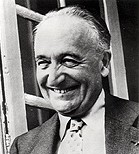 For my own part, I have to admit that I’ve cracked
For my own part, I have to admit that I’ve cracked 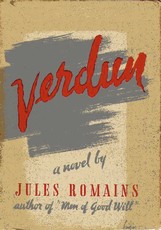 It is true that I haven’t read every one of its 4,256 pages, having sometimes been overcome with yawns in the middle of Jerphanion’s arch and soulful letters to his fellow student Jallez. On the other hand, I have read every word of Vols. I, II, III, IV (in French and English), VIII, and the greater part of Vols. V, VI, and VII. The eight volumes stand before me as I write — 612 cubic inches of reading matter, fully indexed, with more than half again as much to follow. Yet I can’t convince myself that this is a work that belongs somewhere between the “Comedie Humaine” and “Remembrance of Things Past.” I can’t convince myself that it ranks much above ordinary novels in any quality except sheer size.
It is true that I haven’t read every one of its 4,256 pages, having sometimes been overcome with yawns in the middle of Jerphanion’s arch and soulful letters to his fellow student Jallez. On the other hand, I have read every word of Vols. I, II, III, IV (in French and English), VIII, and the greater part of Vols. V, VI, and VII. The eight volumes stand before me as I write — 612 cubic inches of reading matter, fully indexed, with more than half again as much to follow. Yet I can’t convince myself that this is a work that belongs somewhere between the “Comedie Humaine” and “Remembrance of Things Past.” I can’t convince myself that it ranks much above ordinary novels in any quality except sheer size.
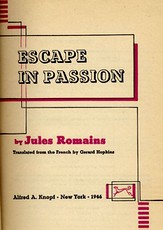 Once I returned to Varsity after Christmas I lost no time in starting upon volume one. In this book alone I met about sixty characters, most of whom appeared throughout the series. On and on I went. I paused for the Easter exams; and then while I sought volume four, missing at
Once I returned to Varsity after Christmas I lost no time in starting upon volume one. In this book alone I met about sixty characters, most of whom appeared throughout the series. On and on I went. I paused for the Easter exams; and then while I sought volume four, missing at 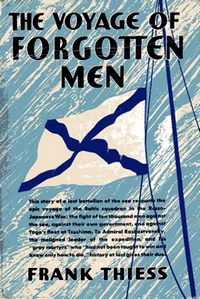

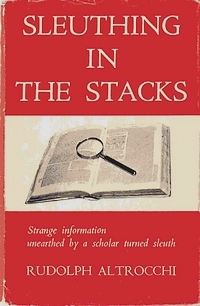

 Antoine left with two stretchers, their bearers silent. They went on foot. In the depot at night you have to watch where you put your feet. The ground is full of traps and pitfalls, switch heads, ditches, and engines under steam, a tiny wisp of smoke coming from their stacks. Antoine was thinking. He did not take such deaths very easily. People said, “Accident at work.” And they tried to make you believe that work is a field of honor, while the company provides the widow with a pension, a niggardly pension, it parts with its pennies like a miser, it thinks that death is always overpaid; later it hires the sons of the dead and all is said.
Antoine left with two stretchers, their bearers silent. They went on foot. In the depot at night you have to watch where you put your feet. The ground is full of traps and pitfalls, switch heads, ditches, and engines under steam, a tiny wisp of smoke coming from their stacks. Antoine was thinking. He did not take such deaths very easily. People said, “Accident at work.” And they tried to make you believe that work is a field of honor, while the company provides the widow with a pension, a niggardly pension, it parts with its pennies like a miser, it thinks that death is always overpaid; later it hires the sons of the dead and all is said.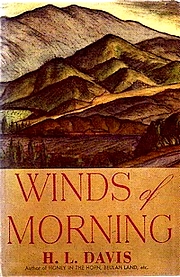
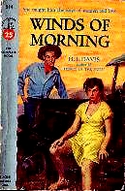 There’s a limit to this respect, though. In fact, we find that horses may have formed a bit too much of Amos’ perspective:
There’s a limit to this respect, though. In fact, we find that horses may have formed a bit too much of Amos’ perspective:
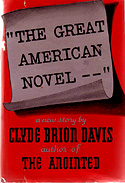

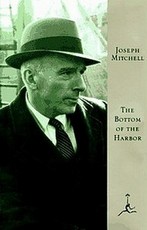
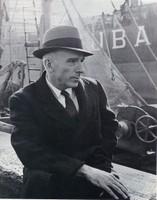 “Mitchell [was] a North Carolinian who became a New Yorker. He went straight from the University of North Carolina to a New York newspaper [The New York Herald Tribune–ed.]. First a reporter, he quickly turned into a feature writer, and then he became an essayist, the best in the city. [He joined the staff of
“Mitchell [was] a North Carolinian who became a New Yorker. He went straight from the University of North Carolina to a New York newspaper [The New York Herald Tribune–ed.]. First a reporter, he quickly turned into a feature writer, and then he became an essayist, the best in the city. [He joined the staff of 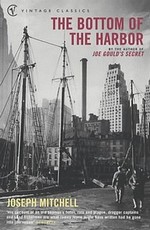 The other five are a kind of writing for which there is no name. Each tells a story, and is dramatic; each is both wildly funny and so sad you can hardly bear it; each tells its story so much in the words of its characters that it feels like a kind of apotheosis of oral history. Finally, like the Icelandic sagas, each combines a fierce joy in the physicality of living with a stoical awareness that all things physical end in death, usually preceded by years of diminishment. One winds up admiring Mitchell’s characters (all real people), loving them, all but weeping for them, maybe hoping to live as gallantly.
The other five are a kind of writing for which there is no name. Each tells a story, and is dramatic; each is both wildly funny and so sad you can hardly bear it; each tells its story so much in the words of its characters that it feels like a kind of apotheosis of oral history. Finally, like the Icelandic sagas, each combines a fierce joy in the physicality of living with a stoical awareness that all things physical end in death, usually preceded by years of diminishment. One winds up admiring Mitchell’s characters (all real people), loving them, all but weeping for them, maybe hoping to live as gallantly.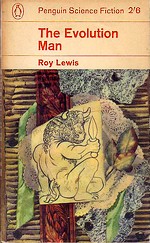
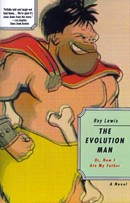

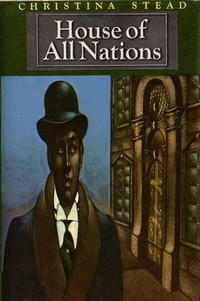
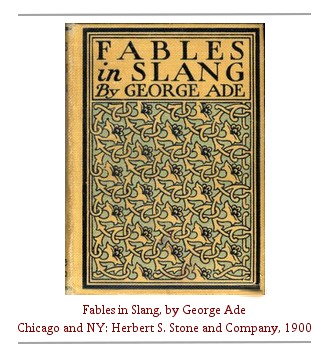
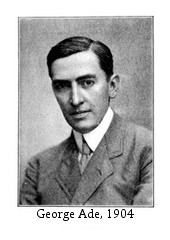 I don’t blame Dreiser for a second, and I understand why he was so hurt when he was accuseed of plagiarism. What he said in substance was that no one ever had described a fast operator so well, and no one ever would describe one so well, so it made every kind of sense to use these marvelous words, and he was simply paying George Ade the sincerest of compliments. Besides, they were both from Indiana….
I don’t blame Dreiser for a second, and I understand why he was so hurt when he was accuseed of plagiarism. What he said in substance was that no one ever had described a fast operator so well, and no one ever would describe one so well, so it made every kind of sense to use these marvelous words, and he was simply paying George Ade the sincerest of compliments. Besides, they were both from Indiana….
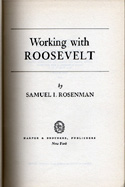
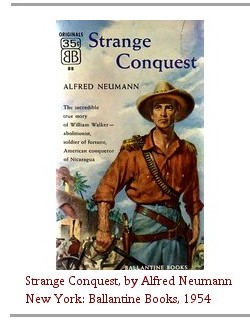
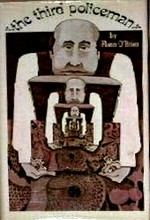
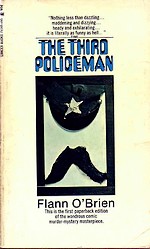 Starting out as a realistic novel,
Starting out as a realistic novel,